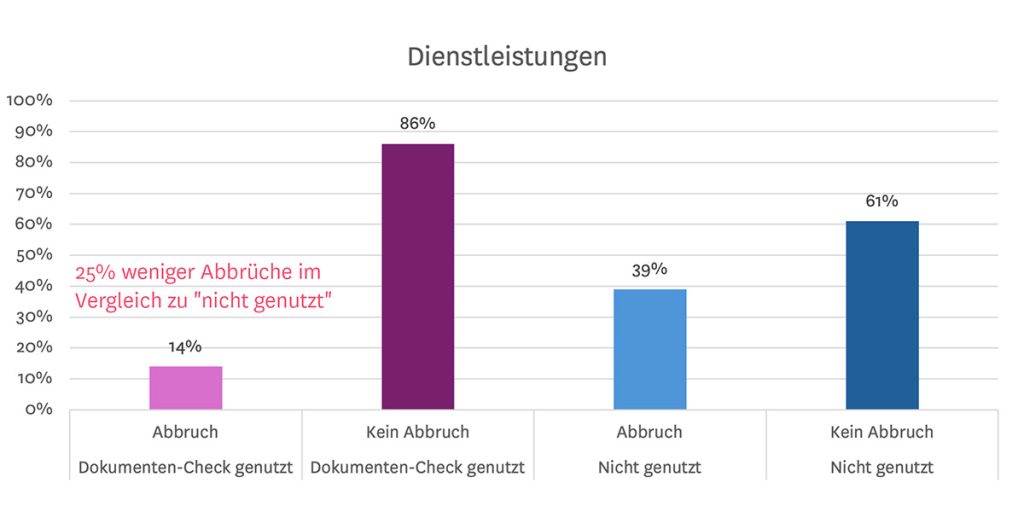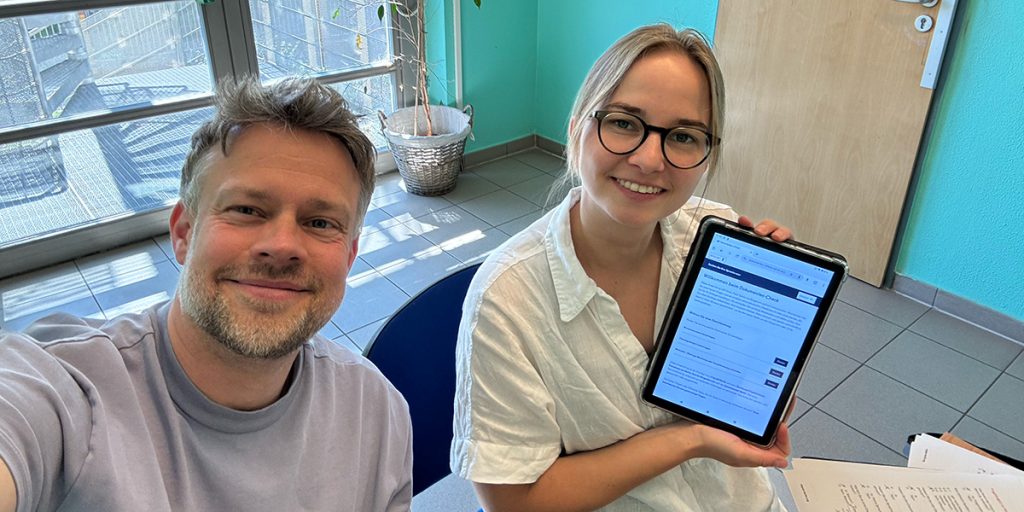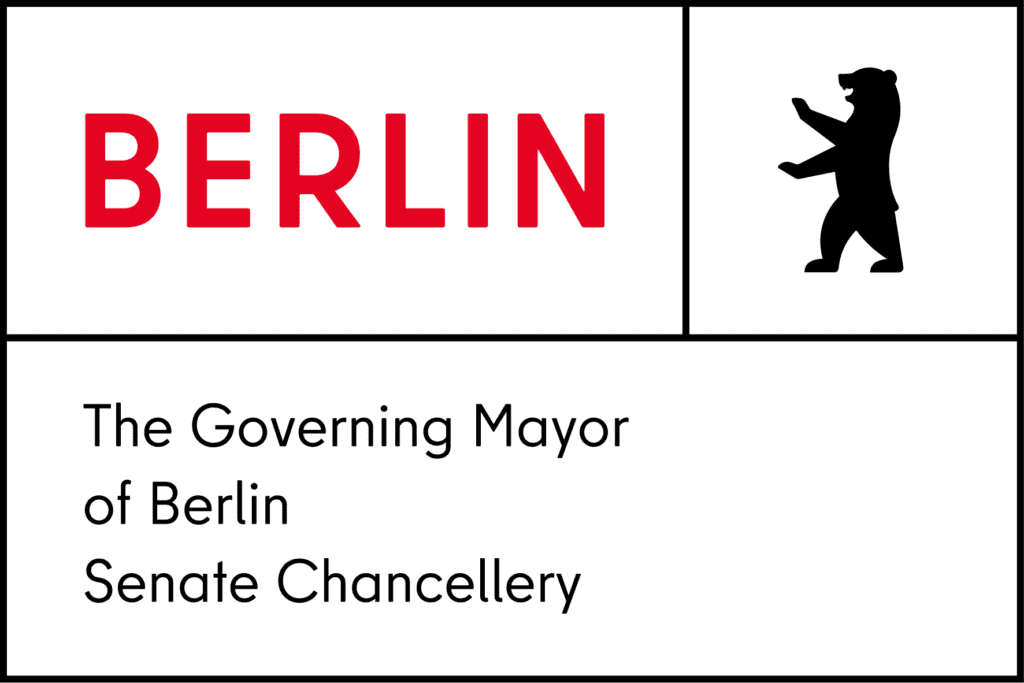In the Bürgeramt der Zukunft (Citizen Office of the Future project), we take a detailed look at everyday work and processes in Berlin’s citizen offices. Together with the Friedrichshain-Kreuzberg Office for Citizen Services, the employees at the Training Citizen Office 2.0 and the Senate Chancellery, we want to find out how processes can be improved – directly, practically and with the aim of initiating concrete changes.
A key question here was: What challenges do citizens’ offices face, both for employees and for citizens? We also asked ourselves: Which work processes in the training citizens’ office can be optimised to better achieve the 14-day target in Berlin – i.e. the possibility of getting an appointment at the citizens’ office within 14 days?
What has happened so far: In the first three parts of the project (Part 1, Part 2 & Part 3), we reported on how we analysed processes and procedures using service design methods and the training citizen’s office 2.0 in Friedrichshain-Kreuzberg. We gained valuable insights into existing challenges and subsequently developed two prototypes: the check-in and the document check.
Focus: The document check
In this fourth part, we take a closer look at the second prototype test of the document check, which we conducted together with the Friedrichshain-Kreuzberg Citizens’ Services Office and the Senate Chancellery.
Our test showed that the cancellation rate for appointments among users of the document check was 25% lower than among people who did not use the check. Citizens felt better prepared, were able to attend appointments with greater confidence and wanted the document check to be available for other administrative services as well.

Our research and interviews clearly showed that a large proportion of cancelled appointments are due to citizens bringing incomplete or incorrect documents with them. With the document check, we wanted to prove that a digital checklist can help reduce these cancellations.
The basic idea: citizens should be able to prepare better for their appointments with the help of a digital, individually tailored checklist. Ideally, they will also realise that certain services are available online – and in such cases cancel their appointment on site. The individually created checklist guides citizens through specific questions relating to the desired service. The answers create an individual path that ultimately shows the required documents. At the same time, a note is provided at the end indicating that the service can also be accessed online (if available).
The second test phase
Following the first prototype test in summer 2024, we launched a second round of testing in May 2025. Over a period of four weeks, we tested the revised prototype at the Training Citizens’ Office 2.0 on Schlesische Straße.
We made a few changes compared to the first test:
- Two additional services were added: applying for an identity card and a certificate of good conduct.
- The design was adapted more closely to the appearance of berlin.de, which led to greater acceptance and trust among citizens. In particular, the adaptation of the design should also ensure that any integration can be carried out more easily.
Thanks to the higher number of supported services, we were able to increase the complexity of the test – and at the same time offer more appointments. A total of 2,073 appointments were made during the entire test period. The test period was structured so that we only collected data during the first two weeks. This means that we determined how many appointments were made for the three services and what reasons led to cancellations. The prototype was active for the following two weeks and could be used by citizens. During this time, we also collected data on how many people used the prototype and measured the cancellation rate. For the first time, we were allowed to distribute the link to the document check via the official appointment confirmation email from the State of Berlin. This allowed us to reach citizens immediately after they booked their appointments – a major improvement compared to the first test.
On site: Feedback and support
During the test phase, we provided support to both citizens and employees on site at the Training Citizens’ Office 2.0. For users of the document check, we developed a questionnaire that we translated into seven languages (including Turkish and Arabic) in order to reach as broad a target group as possible.
Examples of questions included:
- ‘Did the document check help you solve a specific problem?’
- ‘How helpful did you find the document check?’
- ‘Would you use such a checklist for other administrative services?’
The feedback was clear: the document check was found to be helpful and is also desired for other services.

At the same time, employees at the training office conducted a structured online survey. Among other things, they documented whether appointments were cancelled, for what reason, and whether the document check had been used. This additional perspective helped us to evaluate the impact of the prototype in a well-founded manner.
What happens next?
Together with the Friedrichshain-Kreuzberg Office for Citizen Services and the Senate Chancellery, we have decided to further expand the document check – including more complex services such as marriage registration. The prototype is already showing results, and we have noticed a reduction in the number of cancelled appointments. It improves citizens’ preparation and sense of security and provides an opportunity to gain a deep understanding of processes and challenges and to improve them in the long term.
We will keep you up to date on how things are progressing – because the road to the citizen Bürgeramt der Zukunft still has a lot in store!
